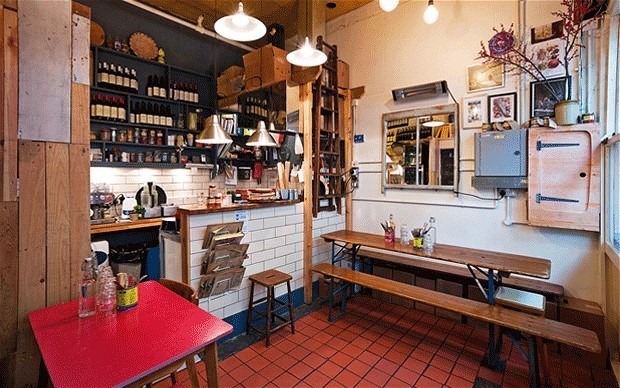Restaurant Funding Tips for Small Food Businesses
There are many restaurant financing options you can select to grow your business. Find and use the best ones to stay clear of debt and move toward success.
Funding is always a concern when starting a new business. There are a lot of things to take care of, and your budget is limited. However, a lack of funding doesn’t mean you should halt your dreams of starting your own restaurant. With a bit of work, you can find the right funding options and start and grow your business in a short amount of time. You just have to be smart about how you acquire your money and how you use it.
Without further ado, here are some restaurant funding tips you can use for your small food business.
Restaurant Financing – What Are Your Options?
There are multiple options you can resort to for funding your new restaurant. However, to get anyone to invest in your business, you must create a detailed and realistic restaurant business plan. You want to convince your investors that your business is worth their money. Also, you should be able to convince your investors that you’ll help them profit from the company in the long run.
With that in mind, let’s get into some tips on how to fund your new restaurant.
Apply for a Start-Up Loan
One of the best things you can do to fund your small business is to apply for a Start-Up Loan backed by the UK government. This loan is an unsecured personal loan that you can use to secure £500 to £25,000 to help your business grow.
This type of loan has a fixed interest rate, which makes it an excellent option for owners of small food businesses. The interest will stay at 6% every year. Another great thing about this type of loan is that there’s no application fee. Also, you can repay your loan over a period of 1 to 5 years. Visit the official website to learn more about this funding option and how you can qualify for it.
Secure an Investor for Your New Restaurant
You should know that it is difficult to secure an investor for small food businesses. However, that doesn’t mean that you should lose hope. By creating a comprehensive, effective, and realistic restaurant business plan, you can increase your chances of attracting investors.
A restaurant business plan is a complete proposal of sorts that outlines your restaurant’s vision in the future. It contains short-term and long-term goals and what you must do to achieve them. It also serves as a roadmap that’ll help you stay focused on achieving your restaurant’s vision.
Your business vision should be clear and unique—remember you want it to attract investors. Investors must buy into your vision before they can provide you with the funding you need. So, make a solid business strategy that’ll struggle to fail.
Consider an Angel Investor
Securing an angel investor is an excellent restaurant financing option. For those of you who don’t know, angel investors are individuals who have excess capital. Therefore, many of them look for new businesses to invest in and help grow. They typically take a stake of 20% to 50%. However, their exact stake will depend on what you negotiate. An angel investor may also have a say on how you run your business, so it’s best to look for one who wants to help you carry out your vision for your restaurant.
An angel investor can also be a friend of yours who’s willing to help you make your restaurant vision a reality. In some cases, they may also be a restaurant mentor who you’ve known from before. Therefore, don’t be afraid to ask people you know to help you with restaurant financing.
One of the best restaurant funding tips we can give you is to lean on your existing network. Doing so is always a good idea because people are more likely to invest in small food businesses if they know the owner. So, if your friends, family, or previous colleagues trust that you will be successful in your restaurant-running endeavour, they may not hesitate to provide you with the funding that you may need.

Consider a Business Loan
You can also consider securing a business loan from one of the various banks in the UK that offer it. The great thing about this type of loan is that you’ll have access to a lot of money upfront. Therefore, you can manage your initial startup expenditure with ease.
If you’re planning to go with this restaurant financing option, you should try to get the lowest possible interest rate. This way, your monthly payments will be more manageable. That said, some banks have fixed interest-rates. A bank will take the following factors into account when you apply for a bank business loan. If any of these factors aren’t satisfactory, they will decline your application. Thus, they will take the following into account.
You can significantly improve your chances of securing a business loan if you improve your strength in these areas. Also, you should make a note of all the additional fees that you have to pay for this loan. In some cases, it’s best to acquire a loan from a lender who has low additional costs, even if the interest is higher than other options.
Last Few Words on Restaurant Funding Tips
Restaurant financing may be a bit of a challenge, but it’s possible if you approach it smartly. It’s always a good idea to ask people you know to help you out. With their help and your vision, you can ensure your restaurant becomes a hit sooner than later.
Do you want to learn more about restaurant financing? Check out our blogs and learn more trade secrets that we have to offer. If you’re seeking professional help, we have experienced restaurant consultants who are ready to help you.
